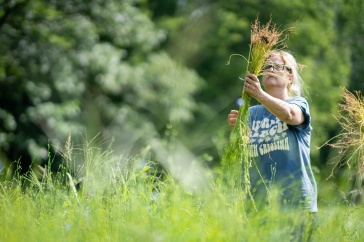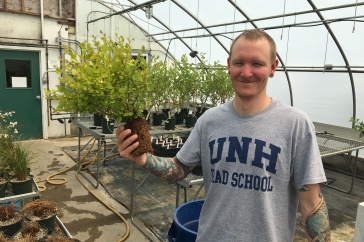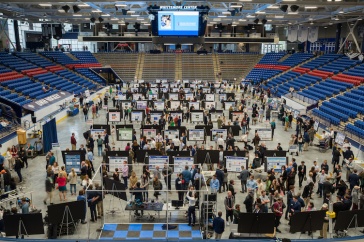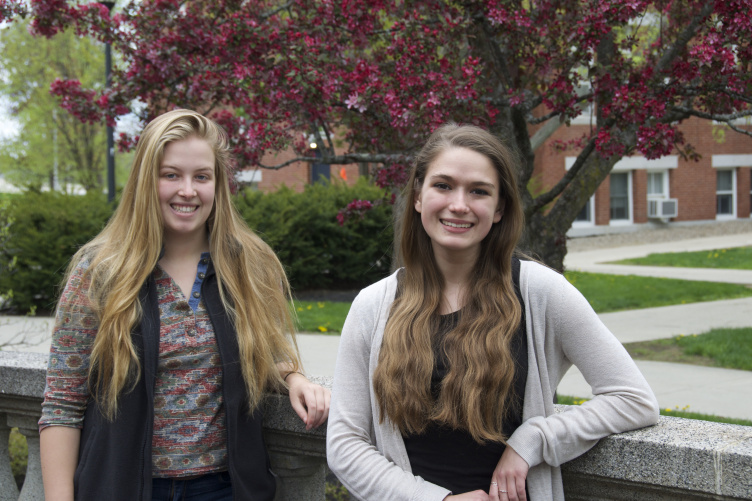
Jordan Garrett '20 and Caitlin Burnett '20 are two of five UNH undergraduates traveling to Bhutan where, working alongside Bhutanese students, they will collect stories about climate change.
The big picture of climate change is often heralded in photos depicting melting ice caps and stranded polar bears or smokestacks tainting the sky with soot. Less well captured are the changes to everyday life that often occur over time.
On May 24, five UNH undergraduates will travel to Bhutan and, working alongside five students from the Royal Thimphu College, spend two weeks looking at that smaller picture by talking with people about the impact environmental changes have had on their lives. Then in July, the international team will visit Norwich, Vermont, and undertake the same kind of analysis. Their stories will be woven into co-curated exhibits at the Montshire Museum of Science in Norwich, Vermont, and the Folk Heritage Museum in Thimphu, Bhutan, collaborators of the project along with UNH and Bhutan college.
"It could be as subtle as they used to plant a crop that doesn’t grow there anymore, or that they don’t have the water access they used to because the source has dried up."
“Weaving Strands of Knowledge: Connecting Culture and Science to Climate Change” will focus on local knowledge and climate science in rural areas in Vermont and Bhutan. At the end of the venture, each museum will host a sustainability festival highlighting the students’ work. The cultural exchange program is funded through the American Alliance of Museums’ Museums Connect, an initiative of the U.S. Department of State that brings people together to conduct community projects that address social issues.
“Students will talk with people in rural communities about how climate change impacts them from a cultural perspective,” says Andrew Coppens, assistant professor of education in learning sciences. “The idea is to see how changes relate to their lives. It could be as subtle as they used to plant a crop that doesn’t grow there anymore, or that they don’t have the water access they used to because the source has dried up.”
Students in both countries, introduced during videoconferences, have had training to hone their interviewing skills as well as lessons on how to use video and audio equipment. They also have participated in discussions on culture and climate change.
“Learning is happening for everyone. Here, we don’t know a lot about the rural areas of Bhutan and there, they don’t know a lot about our rural communities,” Coppens says.
The students will interview farmers and other members of the communities they visit, taking photos and recordings to accompany their written narratives. Bhutan is one of the smallest countries in the world. Located within the Himalayas, its economy is based primarily in agriculture and forestry. Some of the areas the students will visit are not open to tourists.
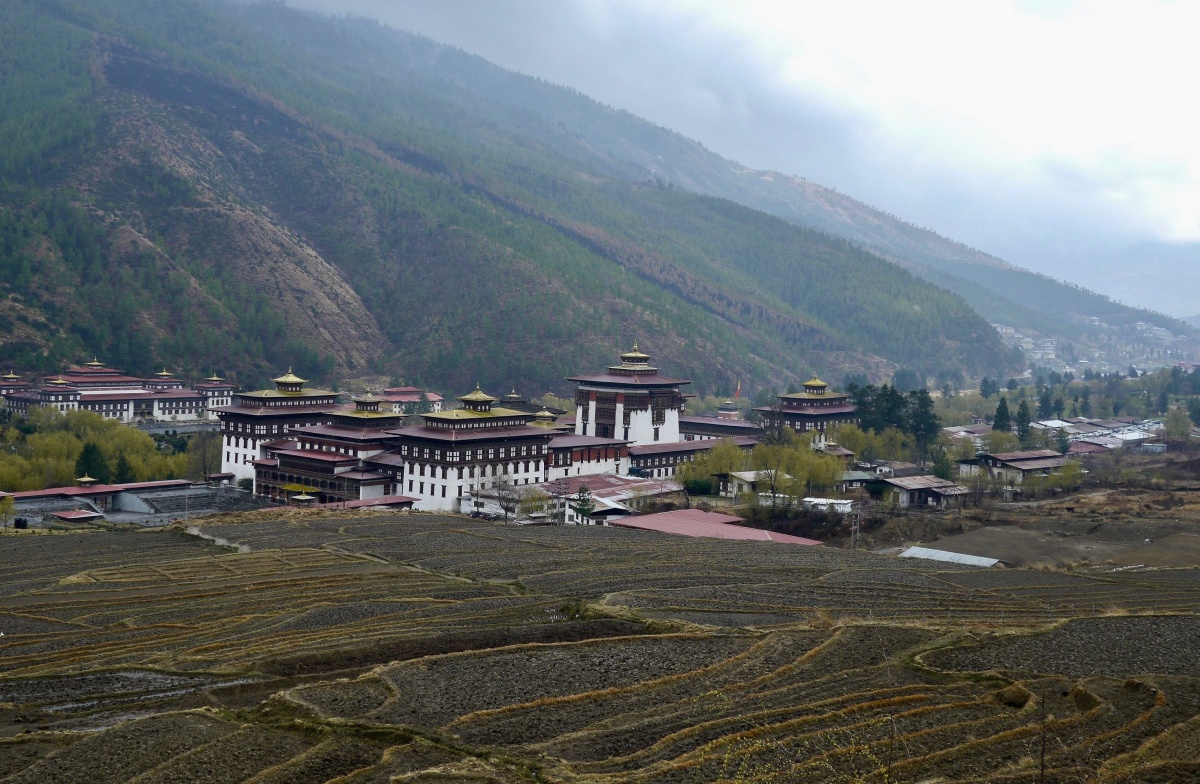
UNH students will visit Tashichho Dzong, a Buddhist monastery and the seat of Bhutan’s civil government, located in the capital city of Thimphu.
Caitlin Burnett is a freshman who sees the international student exchange as a way to wed two key areas of interest to her.
“As an anthropology major, I’m fascinated by stories of lived experiences. I think you can get a lot of quantitative data about different issues but numbers have much less meaning when they aren’t within the context of qualitative human culture,” Burnett says. “I’m especially interested by the stories of climate change. I think that those stories allow more people to see the changes that are happening to our environment, and maybe understand how they affect everyday people.”
Jordan Garrett ’20, an environmental conservation and sustainability major, says, “I have always been really interested in the connections between climate change and people that live close to nature, whether this be indigenous people, farmers, or in this case, the Bhutanese. I think we can learn by examining these relationships.”
Sameer Honwad, assistant professor of education, and New Hampshire students Taylor Lindsay ‘19, (environmental science), Miranda Mail ‘17, (arts education) and Madelyn Webb ‘18 (sociology) make up the rest of the UNH contingent traveling to Bhutan. Greg DeFrancis, associate director and the director of education at the Montshire Museum of Science, will make the trip as well.
“It will be interesting to see how students from both countries approach the project,” Coppens says. “We will all be coming at it from different views and different knowledge bases — what’s the process we’ll go through to learn with and from other people? That will provide its own rich results.”
-
Written By:
Jody Record ’95 | Communications and Public Affairs | jody.record@unh.edu

















































